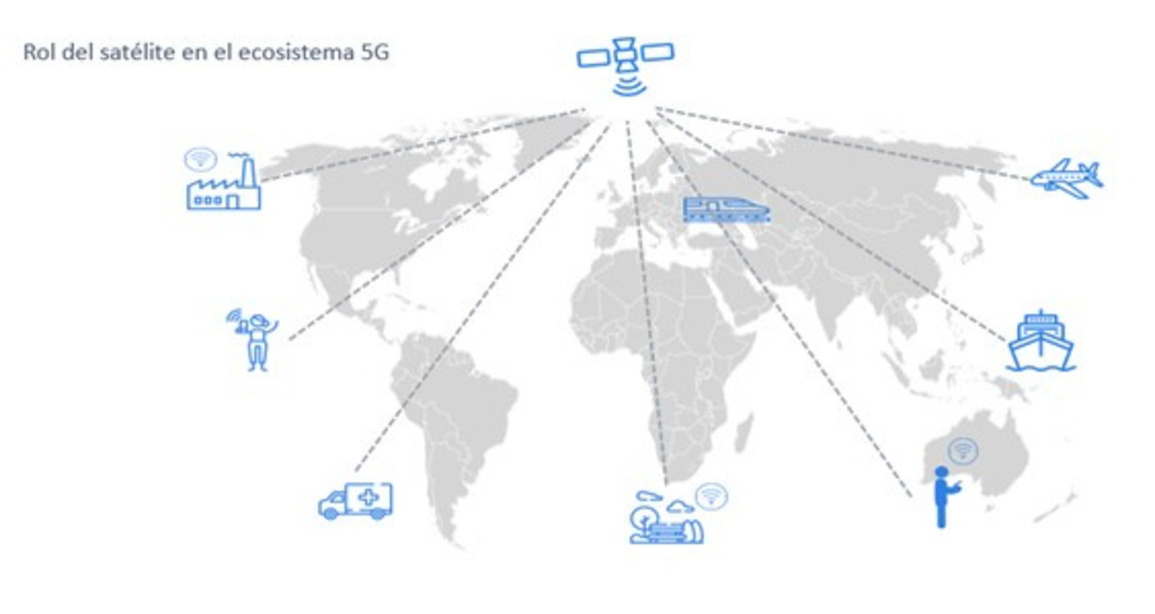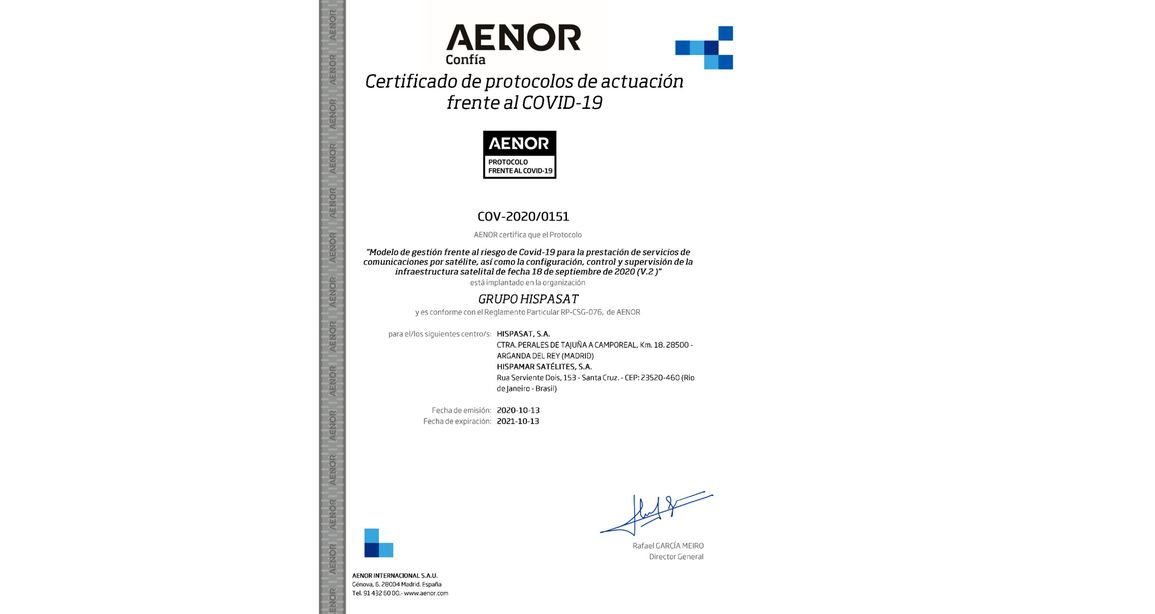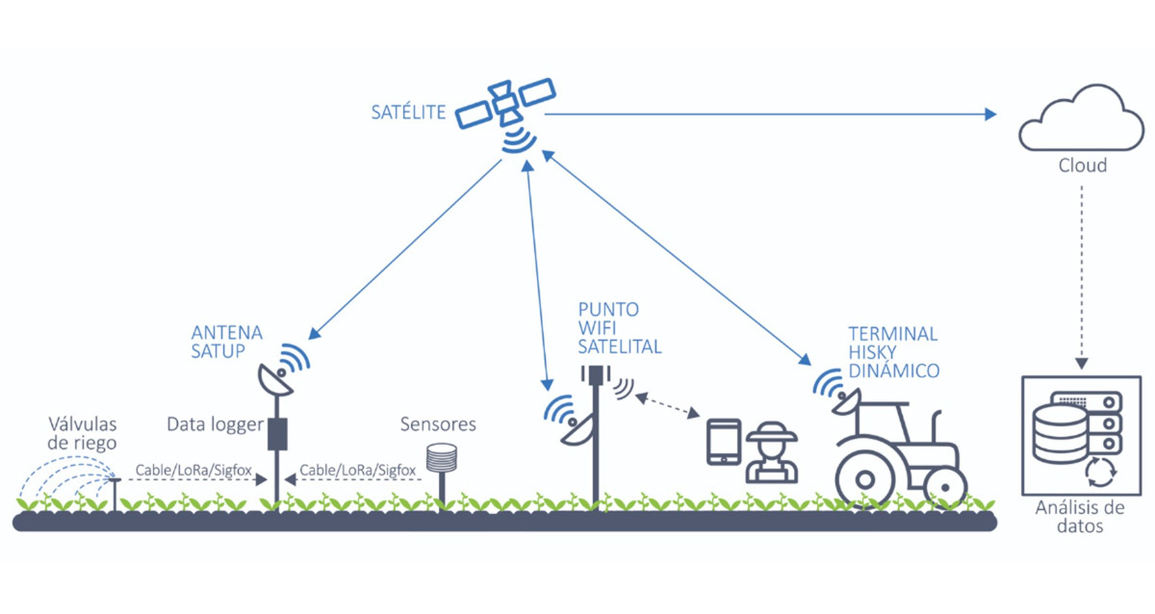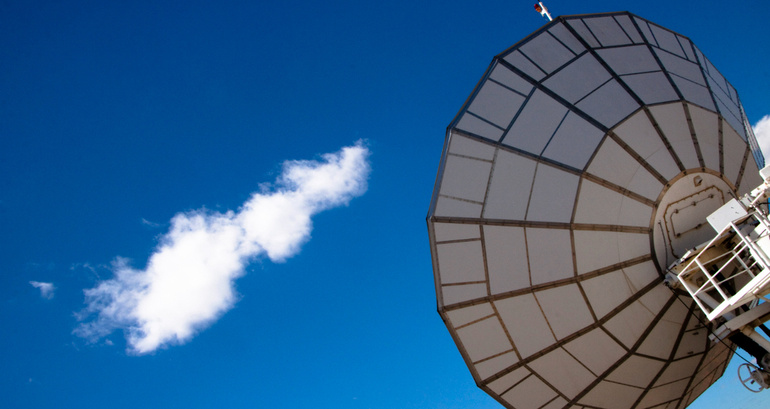
In order to achieve this ambitious objective in an efficient way, a combined use of various fixed, terrestrial and satellite technologies will be needed. Each of them will fulfill its function, but not in isolation, but integrated with the others and combined with them to provide the most appropriate response to the coverage and capacity requirements of this new technology at each time and circumstance. The 5G infrastructure must therefore be an ordered ecosystem: a network of networks made up of complementary layers based on the strengths of each technology.
The satellite is called to play an essential role in various use cases of 5G technology, offering these networks key characteristics to promote their rapid implementation. Thus, its global coverage allows it to provide high-capacity services at any point on Earth, no matter how remote; Its robustness guarantees its users connectivity resistant even to natural disasters, whether they remain static or travel aboard a means of transportation; and facilitate the distribution of data or audiovisual content to many users at the same time in a very efficient way. In addition, its installation is very quick and does not require civil works, which makes it easier to extend the 5G network to the most complicated or distant areas in much less time.
Some use cases where the satellite can contribute to the creation of 5G networks:
Extend your coverage in rural or remote areas.
Guarantee passenger connectivity on board airplanes, boats or land vehicles. Satellite is the most efficient medium for multicast applications, such as mass distribution of software updates.
Promote the development of Edge Computing solutions through the broadcast distribution of data to the network nodes, or even to the user terminal itself.
Establish trunk links in mobile networks to connect remote 5G base stations.
Act as a complement to terrestrial networks to avoid congestion or guarantee continuity in emergency situations.
Connect objects globally and in isolated areas using IoT solutions via satellite.
Implement logistics applications with greater coverage and reliability for e-call services, vehicle tracking, telemetry and cargo management.
At HISPASAT we work so that the satellite plays a prominent role in guaranteeing that 5G technology reaches any point on the planet and is available to users regardless of their geographical location and the deployment of terrestrial infrastructure. That is why we have joined the 3GPP group [VID1][VID2]

HISPASAT has obtained the AENOR certificate for action protocols against COVID-19. This recognition endorses the Management Model implemented by the company to face the situation caused by the coronavirus.

The crisis caused by Covid-19 has highlighted the need and challenge to make fundamental changes, also for the agricultural sector and the way of producing food, as well as for the promotion of connectivity in rural areas.

The next 2023 World Radiocommunication Conference is a critical step to ensure that our satellite services can thrive in a competitive and evolving wireless communication landscape while maintaining global coordination to avoid interference issues

Two years later, we return to the Mobile World Congress with a wide range of new developments in the field of satellite connectivity for remote and mobile environments that you can discover at our stand 7C50, located in hall 7.

This 2021 that is now ending, marked by the pandemic and the measures aimed at reducing its impact, has been for HISPASAT a year full of good news and initiatives of great importance for promoting connectivity in Spain and the American continent.